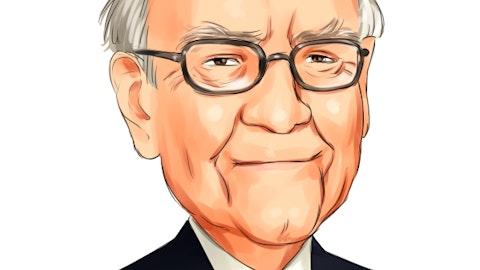Insider Monkey tracks hedge funds, billionaires, and prominent value investors for a very simple reason: their consensus picks generally outperform the market. We aren’t the only research shop broadcasting this fact using a bullhorn. Here is what strategist Ben Snider said in Goldman Sachs’ periodic hedge fund report:
“Despite the strong track record of popular hedge fund stocks, investors often view high ownership as a negative trait when evaluating stock prospects. Clients often ask us to include hedge fund ownership data in stock screens, expressing a preference for buying ‘under-owned’ stocks.”
“In fact, during the past decade hedge fund popularity has been a more useful criterion for selecting stocks than valuations…. The signals from hedge fund popularity and valuation have been particularly useful in combination, especially for investors with slightly longer investment horizons. During the past decade, popular stocks have generally outperformed unpopular stocks across both 3- and 12-month investment horizons” Snider concluded.
It may sound like I am tooting my own horn, but Insider Monkey’s quarterly newsletter is actually superior to Goldman’s report. That’s because we separated the hedge fund favorites into long and short buckets. Our long bucket of hedge fund favorites returned 34.1% in the first half of 2019, whereas our short bucket of hedge fund favorites gained 21.4% during the same period. Hedge funds’ favorite top 20 stocks, on the other hand, returned 24% so far in 2019. You could have beaten the S&P 500 Index funds by 5.7 percentage points by investing in hedge funds’ top 20 picks in 2019, whereas you could have outperformed the index funds by 15.8 percentage points if you invested in our top hedge fund picks. You can try out our newsletter free of charge for 14 days to see hedge funds’ latest best stock picks.
The #8 most popular stock among the 743 hedge funds tracked by Insider Monkey was The Walt Disney Company (NYSE:DIS). Disney was the 29th most popular stock among hedge funds at the end of December (see the 30 most popular stocks among hedge funds). Overall hedge fund sentiment towards Disney has never been higher than it is now and this is a very bullish indicator. We observed this in other stocks like Roku, Control4 Corp, Uniqure, Avalara, and Lindblad Expeditions, and ANI Pharmaceuticals. Roku returned returned 45%, Control4 Corp returned 40%, Uniqure and Avalara delivered a 30% gain each, and ANIP the market by 10 percentage points in Q2. Lindblad Expedition investors also experienced a relatively modest 15.2% gain during the same period.
We have to warn you against indiscriminately imitating hedge funds’ all stock picks. Hedge funds’ top 20 stock picks outperformed the S&P 500 Index funds by 5.7 percentage points this year, but hedge funds’ top 500 stock picks had the same return as the S&P 500 Index this quarter. Investing in a hedge fund’s 35th best idea doesn’t give you the same return as investing in a hedge fund’s best idea.

Steve Cohen
Let’s analyze the new hedge fund action regarding The Walt Disney Company (NYSE:DIS).
How are hedge funds trading The Walt Disney Company (NYSE:DIS)?
Heading into the second quarter of 2019, a total of 114 of the hedge funds tracked by Insider Monkey held long positions in this stock, a change of 61% from one quarter earlier. On the other hand, there were a total of 53 hedge funds with a bullish position in DIS a year ago. With the smart money’s sentiment swirling, there exists a few key hedge fund managers who were upping their stakes considerably (or already accumulated large positions).

The largest stake in The Walt Disney Company (NYSE:DIS) was held by Point72 Asset Management, which reported holding $1142.1 million worth of stock at the end of March. It was followed by D1 Capital Partners with a $701.7 million position. Other investors bullish on the company included Millennium Management, Yacktman Asset Management, and Citadel Investment Group.
As aggregate interest increased, key money managers were breaking ground themselves. Yacktman Asset Management, managed by Donald Yacktman, assembled the biggest position in The Walt Disney Company (NYSE:DIS). Yacktman Asset Management had $507.1 million invested in the company at the end of the quarter. Benjamin A. Smith’s Laurion Capital Management also initiated a $226 million position during the quarter. The other funds with brand new DIS positions are Matthew Halbower’s Pentwater Capital Management, Andrew Immerman and Jeremy Schiffman’s Palestra Capital Management, and Shane Finemore’s Manikay Partners.
Let’s check out hedge fund activity in other stocks similar to The Walt Disney Company (NYSE:DIS). We will take a look at Oracle Corporation (NASDAQ:ORCL), Comcast Corporation (NASDAQ:CMCSA), PepsiCo, Inc. (NYSE:PEP), and Toyota Motor Corporation (NYSE:TM). All of these stocks’ market caps match DIS’s market cap.
| Ticker | No of HFs with positions | Total Value of HF Positions (x1000) | Change in HF Position |
|---|---|---|---|
| ORCL | 52 | 4994743 | -2 |
| CMCSA | 87 | 6279870 | 4 |
| PEP | 51 | 4490981 | -2 |
| TM | 10 | 161453 | 2 |
| Average | 50 | 3981762 | 0.5 |
View table here if you experience formatting issues.
As you can see these stocks had an average of 50 hedge funds with bullish positions and the average amount invested in these stocks was $3982 million. That figure was $7046 million in DIS’s case. Comcast Corporation (NASDAQ:CMCSA) is the most popular stock in this table. On the other hand Toyota Motor Corporation (NYSE:TM) is the least popular one with only 10 bullish hedge fund positions. Compared to these stocks The Walt Disney Company (NYSE:DIS) is more popular among hedge funds. Our calculations showed that top 20 most popular stocks among hedge funds returned 6.4% in Q2 and outperformed the S&P 500 ETF (SPY) by more than 2 percentage points. Hedge funds were also right about betting on DIS as the stock returned 25.8% during the same period and outperformed the market by more than 21 percentage points. Hedge funds were clearly right about piling into Disney relative to other stocks with similar market capitalizations.
Disclosure: None. This article was originally published at Insider Monkey.





